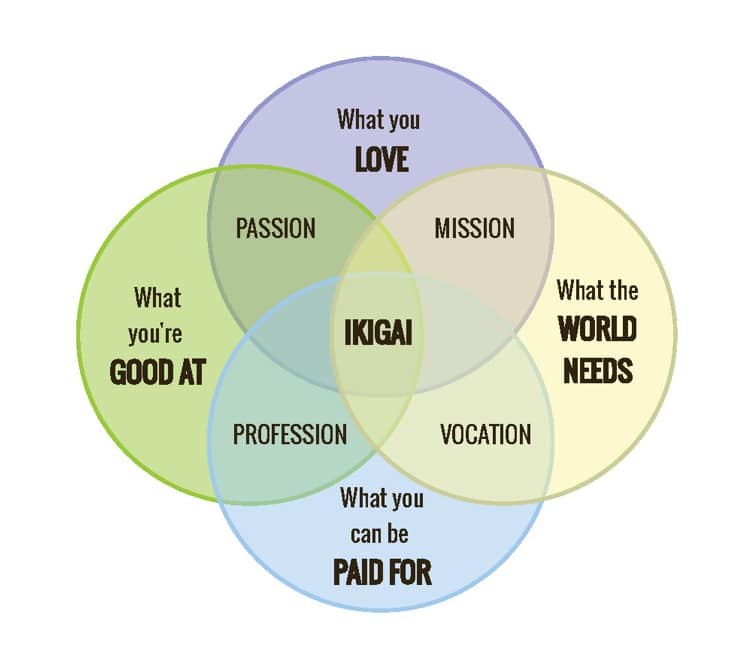In Japan, a concept called Ikigai is central to identify our meaning in the world. It’s finding the answer to the question: “What should I do with my life?”
Ikigai translates to “reason for being”, and it’s one of the most difficult things for anyone to find.
More than being a status or a certain level that is achieved, Ikigai is more about what puts a smile on your face when you wake up in the morning and keeps you motivated, thus requiring a deep reflection into your wants and needs in all areas of life.
Pursuing your Ikigai, according to My Modern Met, is meant to be a challenge that combines commitment, patience, and an importante sense of self-acknowledgment. So where to start? Ask yourself , questions, just as you would if you were changing careers. Start with the basic questions outlined in the ikigai diagram below and then hone in specifically from there. The Ikigai philosophy, which goes back to the Heian period (794 to 1185 AD), can also be applied to a hobby or how you spend your time in retirement. It can evolve over time as our circumstances change, and most importantly, Ikigai doesn’t mean that you need to be happy all the time, rathe than it should be seen as a pathway to navigate the difficult times, leading you where you’d ultimately like to be.
Remember, Ikigai isn’t achieved overnight and isn’t meant to add undue stress to your life. What it should do is remind you that there is more than just one area of life that needs to be considered in order to be a well-rounded individual. Most of all, listen to your instincts.


If you’re interested in reading up even more about this Japanese philosophy, try Ken Mogi’s The Little Book of Ikigai or Ikigai: The Japanese Secret to a Long and Happy Life by Hector Garcia and Francesc Miralles.












